
Hostile Attribution Bias (HAB)
Principal Category: Cognitive Biases
Authors:
• Tim McGuinness, Ph.D., DFin, MCPO, MAnth – Anthropologist, Scientist, Polymath, Director of the Society of Citizens Against Relationship Scams Inc.
Hostile Attribution Bias is a psychological pattern in which individuals interpret neutral or unclear actions as intentionally aggressive. This mindset often develops through trauma, stress, or early exposure to conflict, and it can distort how people perceive the motives of others. A person may react with anger, suspicion, or even fantasies of retaliation; not because someone intended harm, but because the mind assumes hostility. HAB increases emotional distress, leads to social isolation, and fuels a cycle of conflict. It also connects to past experiences, such as scam-related trauma or social media polarization, where trust has already been damaged and fear shapes perception.

Hostile Attribution Bias (HAB)
Hostile Attribution Bias (HAB) is a cognitive tendency to interpret ambiguous or neutral actions, words, or behaviors of others as intentionally hostile, threatening, or aggressive. It’s a psychological phenomenon rooted in social information processing, where individuals are more likely to assume negative intent, leading to heightened defensiveness, anger, or aggression in response. Below, I provide a concise yet comprehensive description of HAB, covering its definition, mechanisms, causes, consequences, and examples, while connecting to your prior discussions on human behavior (e.g., psychology of violence, shame, scam victimization, intuition). I’ll draw on psychological research and critically evaluate its implications, ensuring relevance to your interest in the tendency to desire violence against those we disagree with.
Definition and Core Features
- Definition: Hostile Attribution Bias refers to the predisposition to attribute hostile or malicious intent to others’ actions, even when those actions are ambiguous, unintentional, or benign. For example, if someone bumps into you in a crowded room, HAB might lead you to assume they did it deliberately to provoke you, rather than it being an accident.
- Core Features:
- Misinterpretation of Intent: Assumes others’ actions stem from hostile motives, ignoring alternative explanations (e.g., accident, misunderstanding).
- Automatic and Subconscious: Often operates below conscious awareness, influenced by emotional states or past experiences.
- Context-Dependent: More pronounced in ambiguous situations or with individuals/groups already viewed negatively (e.g., ideological opponents).
- Relevance to Violence: As noted in your prior query, HAB can fuel the desire to see violence against those we disagree with by framing their actions as threats, justifying aggressive responses or fantasies of harm ([prior discussion on violence tendency]).
Psychological Mechanisms
HAB is grounded in social information processing theory (Crick & Dodge, 1994, Psychological Bulletin), which outlines how individuals perceive, interpret, and respond to social cues. Key mechanisms include:
- Cognitive Bias: HAB distorts the interpretation stage, where cues are misread as hostile. This is linked to heightened amygdala activity, which processes threat and fear, leading to quick, emotional judgments (Dodge, 2006, Development and Psychopathology).
- Schema-Driven: Individuals with HAB rely on cognitive schemas (mental frameworks) that expect hostility, often shaped by past experiences like trauma or conflict ([prior discussion on psychological schemas]).
- Emotional Amplification: Anger or fear amplifies HAB, as heightened arousal narrows focus to perceived threats, reducing consideration of neutral explanations. This ties to the anterior insula’s role in emotional processing, also linked to shame ([prior discussion on shame, intuition]).
- Attribution Errors: HAB reflects a fundamental attribution error, overemphasizing personal intent (hostility) over situational factors (e.g., context, accident).
Causes and Risk Factors
Several factors contribute to the development and persistence of HAB:
- Early Experiences: Childhood exposure to violence, abuse, or inconsistent parenting can foster HAB by creating schemas that expect hostility. Studies (e.g., Dodge et al., 1990, Journal of Abnormal Psychology) show children from abusive homes are more likely to exhibit HAB.
- Social Environment: Growing up in high-conflict or unsafe environments (e.g., gang-prone areas) reinforces expectations of hostility, as individuals learn to anticipate threats.
- Personality Traits: Traits like high neuroticism, low empathy, or subclinical paranoia increase HAB, as seen in research on the dark triad (narcissism, Machiavellianism, psychopathy) ([prior discussion on sadistic tendencies]).
- Cultural and Social Polarization: In polarized settings (e.g., political divides, online echo chambers), HAB is amplified by distrust of out-groups, as noted in your interest in social media’s role in negative behaviors ([prior discussion on scams, social media]).
- Stress and Trauma: Chronic stress or PTSD can heighten amygdala sensitivity, increasing HAB, as seen in studies of veterans ([prior discussion on shame, PTSD]).
Consequences
HAB has significant social and psychological impacts, particularly in fostering aggression and conflict:
- Aggressive Responses: By assuming hostility, individuals with HAB are more likely to respond with verbal or physical aggression, escalating conflicts. For example, misinterpreting a neutral comment as an insult may lead to a desire for violent retribution ([prior discussion on violence tendency]).
- Social Isolation: HAB can strain relationships, as others perceive the individual as overly defensive or confrontational, leading to alienation.
- Cycle of Conflict: Misattributing hostility perpetuates a feedback loop, where aggressive responses provoke actual hostility, reinforcing the bias.
- Psychological Distress: HAB contributes to anxiety, anger, or paranoia, as individuals constantly perceive threats, similar to the emotional distress of scam victims ([prior discussion on scam victimization]).
- Societal Impact: In polarized groups, HAB fuels division, as seen in online debates where ideological opponents are assumed to act maliciously, justifying violent fantasies or actions.
Examples
- Everyday Scenario: A coworker forgets to include you in an email, and you assume they’re deliberately undermining you, leading to anger or a desire to confront them aggressively.
- Political Context: During a debate, you interpret an opponent’s critique as a personal attack, fueling a wish to see them humiliated or harmed, as discussed in your violence query.
- Childhood Behavior: A child assumes a peer’s accidental push in a game is intentional bullying, responding with aggression, a pattern studied in school violence research.
- Online Interactions: Misreading a neutral tweet as sarcastic or hostile, prompting a desire to “see them taken down,” reflects HAB amplified by social media ([prior discussion on social media algorithms]).
IMPORTANT NOTE: This article is intended to be an introductory overview of complex psychological, neurological, physiological, or other concepts, written primarily to help victims of crime understand the wide-ranging actual or potential effects of psychological trauma they may be experiencing. The goal is to provide clarity and validation for the confusing and often overwhelming symptoms that can follow a traumatic event. It is critical to understand that this content is for informational purposes only and does not constitute or is not a substitute for professional medical advice, diagnosis, or treatment. If you are experiencing distress or believe you are suffering from trauma or its effects, it is essential to consult with a qualified mental health professional for personalized care and support.

Welcome to the SCARS INSTITUTE Journal of Scam Psychology
A Journal of Applied Scam, Fraud, and Cybercrime Psychology – and Allied Sciences
A dedicated site for psychology, victimology, criminology, applied sociology and anthropology, and allied sciences, published by the SCARS INSTITUTE™ – Society of Citizens Against Relationship Scams Inc.
TABLE OF CONTENTS
A Question of Trust
At the SCARS Institute, we invite you to do your own research on the topics we speak about and publish, Our team investigates the subject being discussed, especially when it comes to understanding the scam victims-survivors experience. You can do Google searches but in many cases, you will have to wade through scientific papers and studies. However, remember that biases and perspectives matter and influence the outcome. Regardless, we encourage you to explore these topics as thoroughly as you can for your own awareness.
Please Leave A Comment
Recent Comments
On Other Articles
[better_recent_comments number=”5″ format=”{avatar} on {post}: “{comment}” {date}” avatar_size=”20″]
A Note About Labeling!
We often use the term ‘scam victim’ in our articles, but this is a convenience to help those searching for information in search engines like Google. It is just a convenience and has no deeper meaning. If you have come through such an experience, YOU are a Survivor! It was not your fault. You are not alone! Axios!
Statement About Victim Blaming
Some of our articles discuss various aspects of victims. This is both about better understanding victims (the science of victimology) and their behaviors and psychology. This helps us to educate victims/survivors about why these crimes happened and to not blame themselves, better develop recovery programs, and to help victims avoid scams in the future. At times this may sound like blaming the victim, but it does not blame scam victims, we are simply explaining the hows and whys of the experience victims have.
These articles, about the Psychology of Scams or Victim Psychology – meaning that all humans have psychological or cognitive characteristics in common that can either be exploited or work against us – help us all to understand the unique challenges victims face before, during, and after scams, fraud, or cybercrimes. These sometimes talk about some of the vulnerabilities the scammers exploit. Victims rarely have control of them or are even aware of them, until something like a scam happens and then they can learn how their mind works and how to overcome these mechanisms.
Articles like these help victims and others understand these processes and how to help prevent them from being exploited again or to help them recover more easily by understanding their post-scam behaviors. Learn more about the Psychology of Scams at www.ScamPsychology.org
Psychology Disclaimer:
All articles about psychology, neurology, and the human brain on this website are for information & education only
The information provided in these articles is intended for educational and self-help purposes only and should not be construed as a substitute for professional therapy or counseling.
While any self-help techniques outlined herein may be beneficial for scam victims seeking to recover from their experience and move towards recovery, it is important to consult with a qualified mental health professional before initiating any course of action. Each individual’s experience and needs are unique, and what works for one person may not be suitable for another.
Additionally, any approach may not be appropriate for individuals with certain pre-existing mental health conditions or trauma histories. It is advisable to seek guidance from a licensed therapist or counselor who can provide personalized support, guidance, and treatment tailored to your specific needs.
If you are experiencing significant distress or emotional difficulties related to a scam or other traumatic event, please consult your doctor or mental health provider for appropriate care and support.
Also, please read our SCARS Institute Statement About Professional Care for Scam Victims – here
If you are in crisis, feeling desperate, or in despair please call 988 or your local crisis hotline.
SCARS Institute Resources:
- If you are a victim of scams, go to www.ScamVictimsSupport.org for real knowledge and help
- Enroll in SCARS Scam Survivor’s School now at www.SCARSeducation.org
- To report criminals, visit reporting.AgainstScams.org – we will NEVER give your data to money recovery companies like some do!
- Sign up for our free support & recovery help at www.SCARScommunity.org
- Follow us and find our podcasts, webinars, and helpful videos on YouTube: www.youtube.com/@RomancescamsNowcom
- SCARS Institute Songs for Victim-Survivors: www.youtube.com/playlist…
- Learn about the Psychology of Scams at www.ScamPsychology.org
- Dig deeper into the reality of scams, fraud, and cybercrime at www.ScamsNOW.com and www.RomanceScamsNOW.com
- Scam Survivor’s Stories: www.ScamSurvivorStories.org
- For Scam Victim Advocates, visit www.ScamVictimsAdvocates.org
- See more scammer photos on www.ScammerPhotos.com


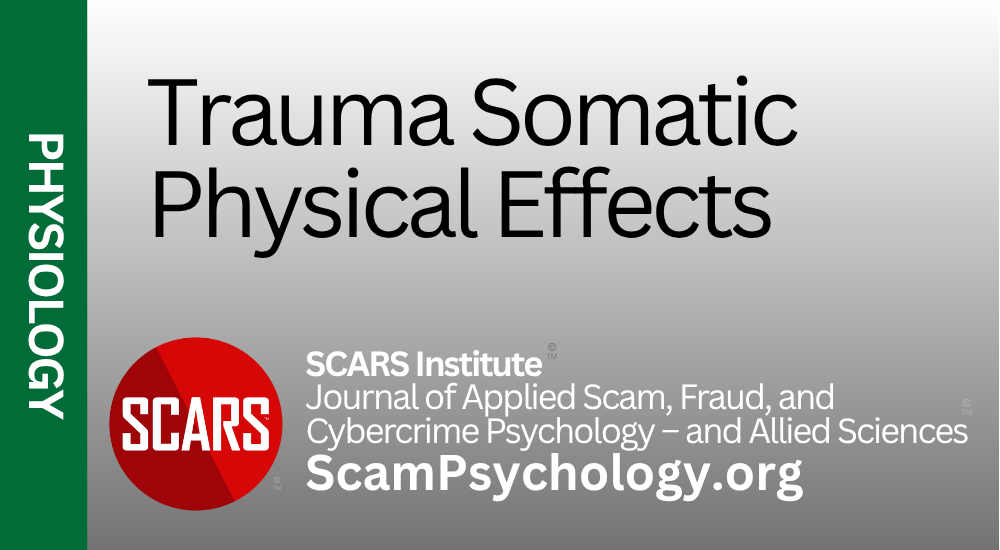
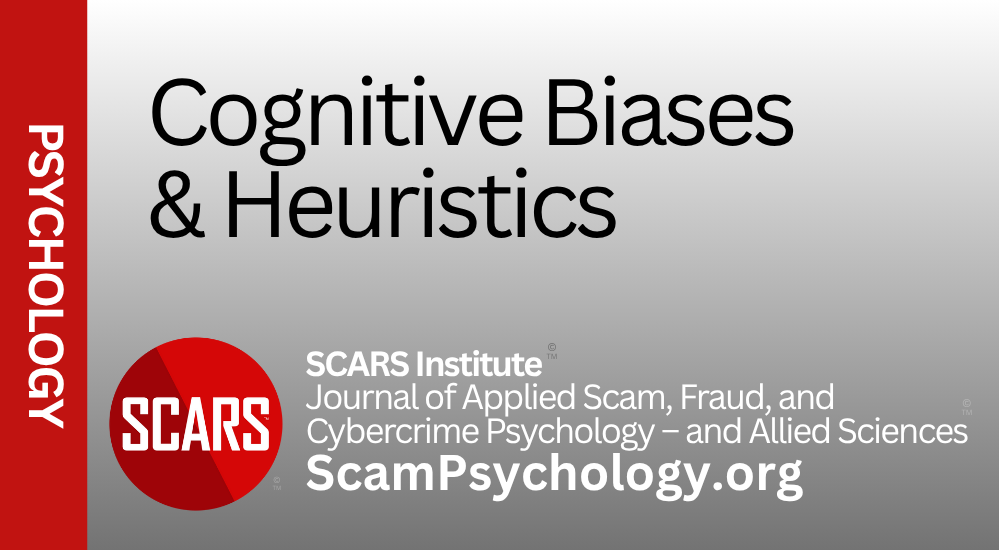
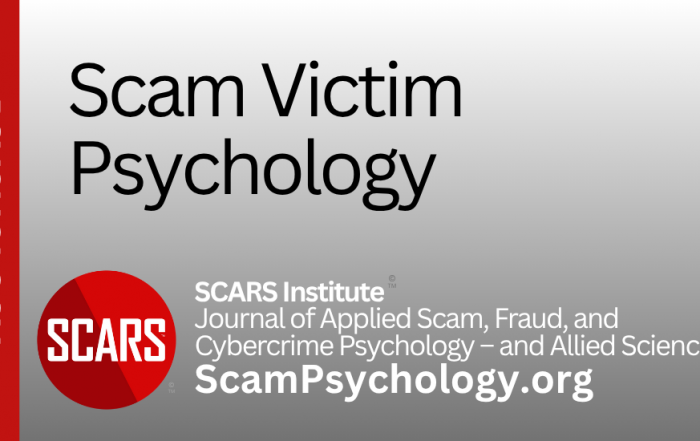
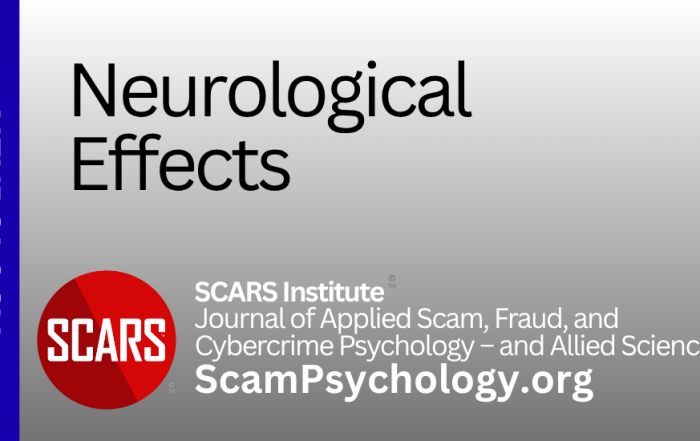

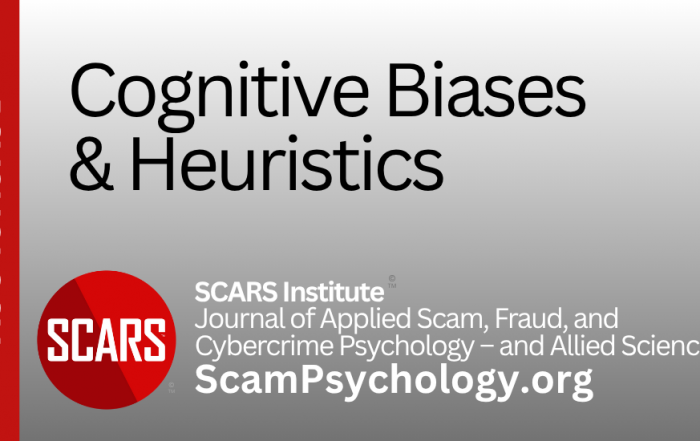
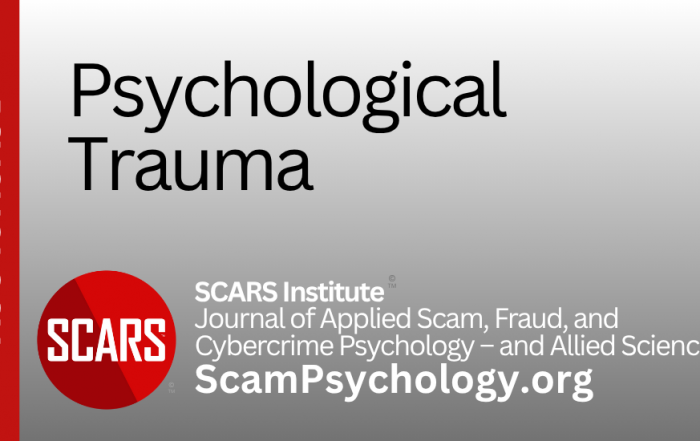
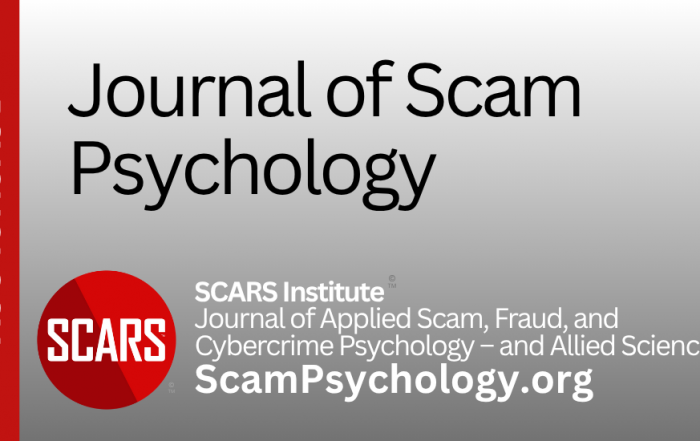
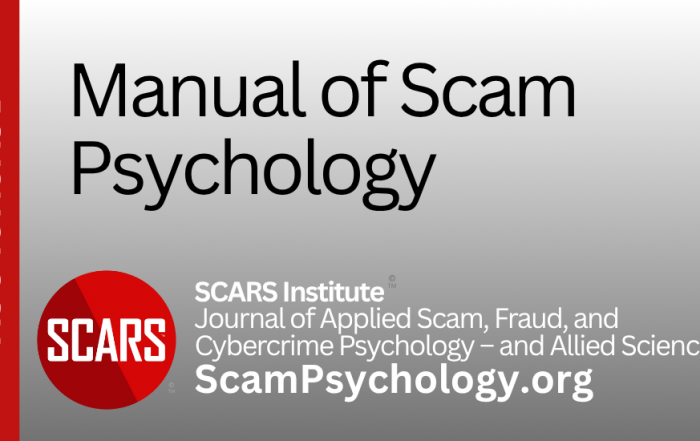

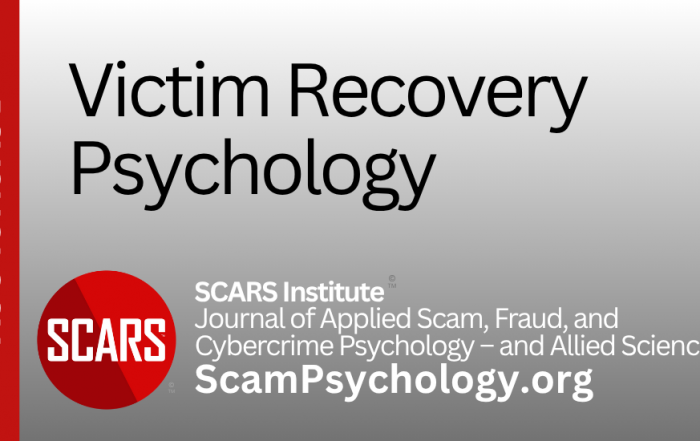

![niprc1.png1_-150×1501-11[1]](https://scampsychology.org/wp-content/uploads/2025/05/niprc1.png1_-150x1501-111.webp)